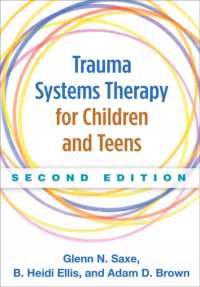Full Description
This volume of the Yearbook of International Humanitarian Law takes a close look at the role of so-called "expert manuals" in the interpretation and development of the international law of armed conflict and connected branches of international law relating to military operations. While these manuals can and do play an undoubtedly useful role, their proliferation raises a number of questions. What degree of authority do they have and how much weight should be given to the views expressed in them? What is the methodology they employ and how effective is it in ensuring an as objective and impartial interpretation of the law as possible? What is their place in the doctrine of sources? While there is already a considerable body of literature addressing these and other relevant questions, this volume aims to contribute further to this discussion with contributions by three experts involved in one or more of these manuals in one capacity or another.
Alongside these three contributions on this year's special theme, the second part of the book comprises three chapters that address timely and relevant issues of International Humanitarian Law. These range from starvation as a method of warfare, to emerging technologies of warfare, and also includes reflections on humanitarian assistance. Lastly, the volume concludes with the Year in Review, describing the most important armed conflict-related events and legal developments that took place in 2020. The Yearbook of International Humanitarian Law is a leading annual publication devoted to the study of international humanitarian law. It provides a truly international forum for high-quality, peer-reviewed academic articles focusing on this crucial branch of international law. Distinguished by contemporary relevance, the Yearbook of International Humanitarian Law bridges the gap between theory and practice and serves as a useful reference tool for scholars, practitioners, military personnel, civil servants, diplomats, human rights workers and students.
Contents
Part I. Expert Manuals.- Chapter 1. Law of Armed Conflicts Manuals.- Chapter 2. A Room Full of Experts: Expert Manuals and Their Influence on the Development of International Law.- Chapter 3. The Leuven Manual on the International Law Applicable to Peace Operations: An Ambitious Sui Generis Expert Panel Manual with Time on Its Side?.- Part II. Other Articles.- Chapter 4. Examining a Norm of Customary International Law that Criminalises the Intentional Use of Starvation of the Civilian Population as a Method of Warfare.- Chapter 5. Does International Law Permit the Provision of Humanitarian Assistance Without Host State Consent? Territorial Integrity, Necessity and the Determinative Function of the General Assembly.- Chapter 6. Article 36: Review of AI Decision-Support Systems and Other Emerging Technologies of Warfare.- Part III. Year in Review.- Chapter 7. Year in Review 2020.- Table of Cases.- Index.







